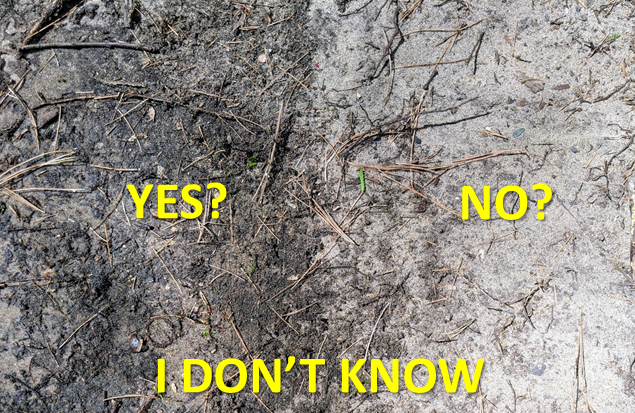Should I irrigate ahead of the coming freeze?
The benefits of irrigating early-sown vegetables depend on weather ahead of the freeze, but soil moisture can help retain heat.

Many growers are irrigating ahead of the upcoming winter-like weather with the hopes of protecting seedlings of early-sown vegetables (Photo 1).
How does this work? Water is a better thermal conductor than air. Soil that has moisture in it can better absorb and transfer heat from the sun into the soil profile during the day and back upwards towards the surface and plant canopy at night. Moisture will also darken light colored soils like sand, making them absorb more heat. This can be potentially helpful in increasing overnight minimum air temperatures and reducing damage to emerged seedlings.
How much irrigation should I apply to moisten the soil? One recommendation could be to apply enough water to wet the soil to a six inch depth.
How will weather affect the benefits of this approach? This approach will work best if a sunny, clear day precedes the freeze. This will allow solar radiation to be stored as heat in the ground. If a cool, cloudy day precedes the freeze, less heat will be stored.
What time of day makes sense to irrigate? Extension educators in our Great Lakes Vegetable Working Group have suggested that irrigation may be most beneficial if it is done early enough to let the ground absorb heat from the sun (in other words, not at night time).
Is frost heave a concern? Some growers are wondering if adding soil moisture will make the ground freeze harder and heave. How does frost heave happen? Soil is a combination of soil particles and pores. Pore spaces can be filled with either air or water. When water in the pores freezes, ice formation creates upward pressure that can cause the ground to heave. Growers of taprooted vegetables like carrots are concerned about the effects of heaving on young seedlings. Risk of frost heave will be greatest if all three of the following occur:
- Soils are cold at sunset, so they don’t have much heat to radiate before they freeze.
- The forecast predicts very sustained subfreezing temperatures overnight.
- Soils are saturated.
Having moist soils will delay the time it takes the soil temperature to dip to freezing because water will radiate heat up through the soil at night. However, if soils do get to 32 degrees Fahrenheit, the water can freeze to create frost heave. Unfortunately, there is a lot of uncertainty about how overnight freezes will affect soil temperature at the shallow depths early-season vegetables are sown (Photo 2).

So, what should growers do? In the end, growers will have to weigh their current soil temperature/moisture versus the forecasted overnight temperature to determine which strategy is most suitable for their soil. Growers could also make the best of a bad situation by paying close attention to irrigated vs non-irrigated areas during overnight freezes. That way, we can all learn for next time.



 Print
Print Email
Email

